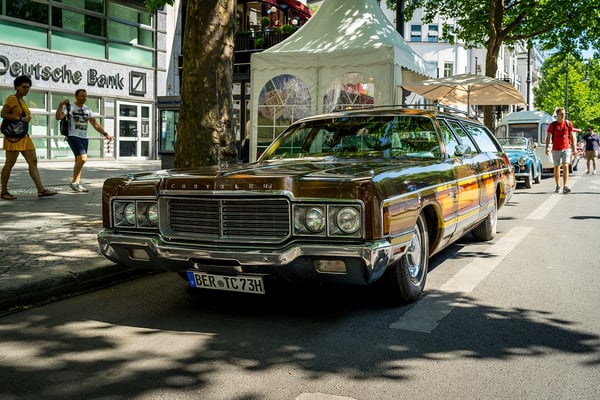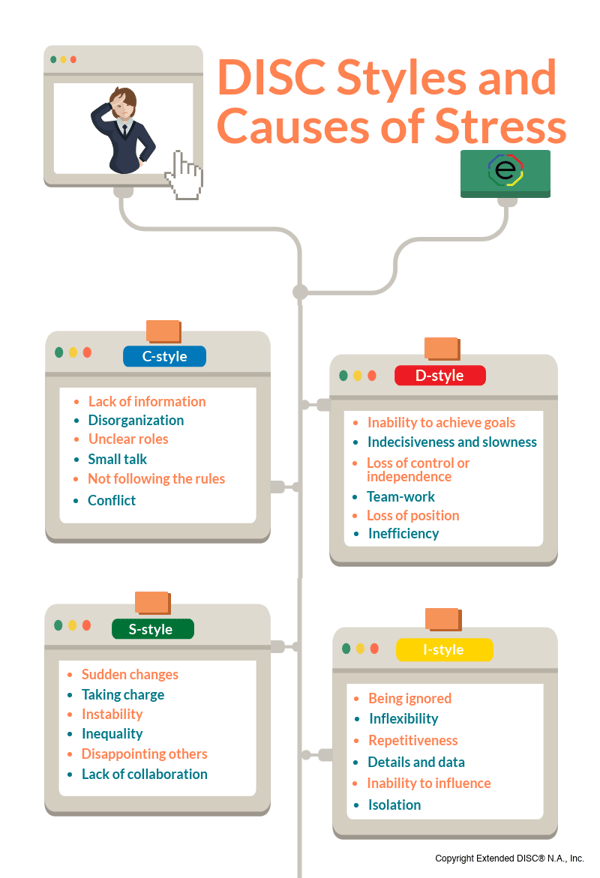Road trips can be a trip of a lifetime or an epic nightmare. How can DISC help tip it to the right side?
Some of you may remember seeing the movie, National Lampoon's Vacation. It follows the misadventures of the Griswold family as they take a cross-country road trip to Wally World. The Griswold family had an abundance of hilarious disasters and crazy predicaments. Of course, movie magic makes it beyond belief and funny; but in reality we can probably all relate in some way and in reality it isn't always funny.
Hitting the road can be exhilarating for some optimistic family members, and overwhelming for others. DISC can help your family plan and prepare, by understanding how each of us prefer to do things, so road trips can be a fun and memorable experience for all.
Don't be the Griswolds!

I'm sure none of our road trips are any where near the level of the Griswolds (at least I hope they haven't been)! But, imagine being in the car for hours upon hours. It means tight spaces, loss of personal space, and sometimes, nowhere to escape. Don't get me wrong, road trips can build amazing memories and take us places we've always wanted to go. We use these opportunities to converse, debate, sing, joke, and laugh.
Road trips are most often taken with family members and close friends. We're very comfortable with these travel buddies so it's not unheard of to get cranky or not try to please others. What happens when we are unlikely or even unwilling to adjust? Typically, we are in situations where can change the setting by walking away and escaping to another room; not as likely in a car. So, how can we avoid the Griswold's version of a road trip and focus on creating lasting memories?
How DISC can help your road trip

DISC cannot predict or guarantee harmony and success, but it can help increase our chances of it. First, we should understand that we have different behavioral styles; how we prefer to do things. What may be motivating for one family member may actually be demotivating for another. For example, happy sing-a-longs and chit chat may be a perfect way to past the time for your I-style, but can draining for your C-style. Your D-style wants to get from point A to point B as quickly as possible, while your S-style is stressed because the D-style keeps rerouting the Google Maps and going above the speed limit.
Why do we tend to show the negative attributes of our behavioral style, especially when we're under pressure? DISC helps predict how family members may show pressure and provide tips for relieving it. For example, your C-style will find small talk, disorganization, and conflict stressful. Family members can help the C-style manage their stress better by respecting their silence, not engaging in heated debates, and as clearly as possible, laying out the trip itinerary.
How do we create opportunities for positive interactions and avoid misunderstandings? What is the best way to be prepared before you pile into the car? If you know how each family member prefers to interact, and how they tend to show up under pressure, then you can be more aware and practice adjustments based on your own style. You can do your part in improving your interactions. It's takes energy and focus to adjust, and we tend to be less motivated with family and friends than we are with strangers. Remember, these adjustments tend to be brief and temporary, but the effects of them can be rewarding and appreciated.
Interacting with DISC Styles
 DISC itself, is like a road map; perfect for a road trip. It helps predict how each person prefers to do things. DISC helps explain what happens when you and your family members don't adjust.
DISC itself, is like a road map; perfect for a road trip. It helps predict how each person prefers to do things. DISC helps explain what happens when you and your family members don't adjust.
Your D-style is most comfortable when they are in control. They are decisive and can convince you their opinion is fact. However, it can begin to feel overbearing and insensitive. They may not ask for your input and can get irritated easily. So, the next time you are figuring out when to stop for a break, try giving your D-style options so they feel in control and be direct or think about it ahead of time so they can see the endpoint and get you there. If you are a D-style, try slowing down and asking for input from others. Consider the feelings and opinions of others. It may not be easy, but in the end, you will get to what you want quicker; with less conflict and chatter.
Your I-style is most comfortable when they have variety and chances to interact; specifically, chances to talk. They help create a fun and positive atmosphere in the car. Let them talk and share their enthusiasm. Share their impulsiveness and find amazing things to see and do off the grid. As an I-style, remember that some family members need quiet time to recharge and staying to the planned itinerary also brings you to amazing places.
Your S-style is most comfortable when the car ride is harmonious, even if it's at the cost of themselves. Their modesty may not allow them to speak up when they need something. They are typically easy going, but they can feel unsettled if the plans constantly change. They don't like to be rushed into making decisions so provide as much information as possible and answer their questions. Keep an eye out to make sure their needs are being met; they may not speak up. As S-styles, don't overlook yourself; your input is important and actually adds to the success of the family road trip.
Your C-style is most comfortable when they know what to expect and the trip proceeds logically. Include them in the planning and give as much detailed information as possible. They may not jump into conversations unless it is an area they are interested in. They need down time so respect it. As for C-styles, practice small talk in the safest place of all, your family.
The best road trip ever!
 So be spontaneous and go off the beaten track, but also have a plan so other family members have something to look forward to. Let your more reserved family members know to expect some detours. They'll feel more comfortable because the time will be built in for unexpected experiences to happen. Have them help plan and prioritize definitive plans they want to see or things they want to do so their expectations are met. Your task-oriented styles may appreciate a checklist of locations and sites to see. Sometimes, getting from point A to point B is an important part of the trip because all trips need to end sometime!
So be spontaneous and go off the beaten track, but also have a plan so other family members have something to look forward to. Let your more reserved family members know to expect some detours. They'll feel more comfortable because the time will be built in for unexpected experiences to happen. Have them help plan and prioritize definitive plans they want to see or things they want to do so their expectations are met. Your task-oriented styles may appreciate a checklist of locations and sites to see. Sometimes, getting from point A to point B is an important part of the trip because all trips need to end sometime!
The adjustments suggested are often brief and temporary, but the results can be rewarding. It can turn a stereotypical family road trip into a memory to last a lifetime (or at least one that can be repeated)! Remember, the goal is to not change who you are, but to change your behaviors! Watch the National Lampoon's Vacation for fun, but don't let it happen to your family road trip!
